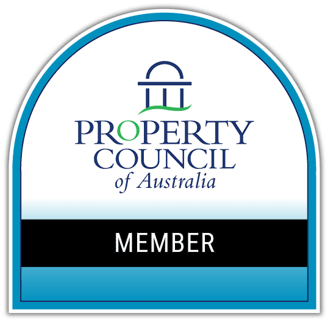Add value to your annual real estate trust account audit.
Most real estate agencies maintain a real estate trust account to manage trust money on behalf of their clients.
Australian state legislation requires real estate agencies to have these accounts audited at least once a year.
RSM Australia has a dedicated team of approved trust account auditors ready to help with your annual audit.
 We are experienced in conducting trust account audits.
We are experienced in conducting trust account audits.- We will tell you about any legislative changes and how they might affect your agency.
- We will add value to your audit experience, with actionable insights to help you improve your operations.
Now is the perfect time to plan for the audit of your trust account.
Contact us to get started.
We add value
Trust account audits may be mandatory, but they can also be an opportunity.
If you:
- Only hear from your auditor once a year.
- Do not receive recommendations for improvements in your audit report.
This could indicate an increased compliance risk for your agency. It may be time to look for a new auditor.
At RSM Australia, our audit and assurance team has a firm-wide policy of looking beyond compliance to add value to our clients. That is why we will evaluate your trust accounting systems and current practices in addition to providing a compliance-based audit report.
Our goal is to provide actionable recommendations that can enhance your business operations.
We have years of experience in auditing real estate trust accounts
If you’re in the real estate business, you know how important it is to get trust account audits right. Our team specialises in auditing real estate trust accounts across Australia, and we truly understand the unique challenges you face.
We are proficient in various trust accounting software, including PropertyMe, PropertyTree, AgentBox, Re-Leased, and Sherlock. We also keep ourselves updated on the latest guidelines from CPA Australia, which means you can trust us to navigate the regulatory landscape for you.
We pride ourselves on conducting thorough audits that ensure you meet all statutory requirements while delivering exceptional service.

RSM is a member of the Property Council of Australia – the leading advocate for companies that represent the full spectrum of the property industry.
Get in touch
Get in touch
How to prepare for a real estate trust account audit
Preparing for a real estate trust account audit involves several key steps to ensure compliance and a smooth audit experience.
Here are some essential tips:
Maintain accurate records:
Ensure all trust account records are up-to-date and accurately reflect all transactions.
Internal reviews:
Conduct regular internal audits to identify and rectify any discrepancies before the external audit. This helps in maintaining ongoing compliance.
Reconcile accounts:
Regularly reconcile trust accounts to ensure the balances match the records. This includes reconciling client ledgers with bank statements in the required timeframes.
Organise documentation:
Keep all trust documents well-organised and easily accessible. This includes transaction records, receipts, payments, and any correspondence related to trust account transactions.
Compliance checklists:
Consider using compliance checklists to ensure all regulatory requirements are met each month.
Staff training:
Ensure that all staff handling trust accounts are well-trained in compliance requirements and understand the importance of accurate record-keeping.
Use approved software:
Implement robust accounting software that complies with legal standards and provides real-time compliance monitoring.
Secure records:
With more firms moving to cloud-based systems, it is critical to ensure that all documentation related to trust accounts is appropriately protected and kept safe and secure for the relevant periods.
Frequently asked Real Estate trust account audit questions
Partnering with RSM means you get a team you can trust and are committed to delivering timely audit reports for your peace of mind. After our initial planning meeting with management, we provide a schedule of audit document requests required for the real estate trust account audit and lock in audit dates.
We will streamline your trust accounting compliance with our proven audit methodology. Our hybrid working model combines on-site and remote visits, minimising disruption while ensuring cost-effective audits that meet your needs. Where information is required electronically, we use our secure iManage Share platform, which helps to facilitate the efficient transfer of information, including the ability to upload large files at high speeds.
At RSM, we believe in continuous education and improvement, which is why we tailor our insights specifically to your unique challenges and goals. Our comprehensive annual management letters are filled with actionable recommendations to enhance your trust accounting systems and processes.
A real estate trust account audit is an annual review by an auditor to ensure that a real estate agency’s trust accounts comply with relevant legislation and regulations. Real estate agencies maintain trust accounts to handle money on behalf of their clients, and these accounts must be accurately documented and managed.
The audit involves checking that:
• Trust accounting records are properly kept.
• There is no loss or deficiency of trust funds.
• All legal rules and regulations regarding handling trust money are followed.
The relevant state-based legislation mandates real estate trust account audits. Each state also has a regulatory body that ensures that real estate agencies comply with the applicable legislation and maintain the integrity of their trust accounts through regular audits.
Real estate trust account audits are mandated by the relevant state-based legislation. While individual agencies may differ, the usual year-end and audit due dates are outlined below.
Real estate trust account audits must be performed by an auditor who meets specific qualifications and is approved by the relevant regulatory body in each state or territory.
RSM has a number of approved auditors across the relevant states and territories.
For a real estate trust account audit, your auditor can request any documentation under the relevant legislation. Standard documents that your examiner may ask for include:
• Trust account bank statements
• Trust account bank reconciliation
• Cash receipts and cash payment reports
• Trust ledgers
• Trust receipts
• Duplicate deposit slips
• Trust payments, including by both cheque and electronic funds transfers
• Trust transfer journal reports
• Trust journals
• Register of securities
• Bond registers
• Deficiencies reported to regulatory bodies
• Any other relevant documents that support the transactions in the trust account.
A real estate trust account audit is a compliance audit that focuses specifically on the compliance of the trust records, whereas a financial statement audit examines an organisation’s overall financial health and practices.
After our initial planning meeting with management, we provide a schedule of audit document requests required for the real estate trust account audit and lock in audit dates.
Our real estate trust account audits are often completed with a hybrid working arrangement, combining on-site and remote visits to minimise disruption to our clients. Where information is required electronically, we utilise our secure iManage Share platform, which helps to facilitate the efficient transfer of information, including the ability to upload large files at high speeds.















